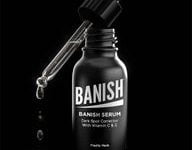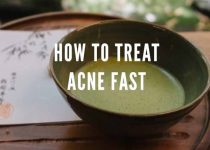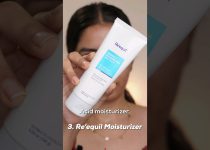Tips And Guide To Cure Acne
Acne is a common skin condition that affects people of all ages. It can be caused by a variety of factors, including hormones, bacteria, and diet. While there is no one-size-fits-all cure for acne, there are a number of effective treatments available.
**Causes of Acne**
Acne is caused by a combination of factors, including:
* **Hormones:** Androgens, which are hormones that increase during puberty, can stimulate the production of sebum, an oily substance that can clog pores.
* **Bacteria:** The bacteria Propionibacterium acnes (P. acnes) lives on the skin and can cause inflammation and infection when it enters clogged pores.
* **Diet:** Some studies have shown that a diet high in processed foods, sugar, and dairy products can contribute to acne.
**Types of Acne**
There are several different types of acne, including:
* **Whiteheads:** Closed pores that are filled with sebum.
* **Blackheads:** Open pores that are filled with sebum and have been exposed to air, causing them to turn black.
* **Papules:** Small, raised bumps that are red or pink.
* **Pustules:** Papules that have filled with pus.
* **Nodules:** Large, painful bumps that are deep in the skin.
* **Cysts:** Large, pus-filled bumps that can cause scarring.
**Treatment for Acne**
There are a variety of effective treatments available for acne. The best treatment for you will depend on the type of acne you have and its severity.
* **Over-the-counter treatments:** Over-the-counter acne treatments can help to reduce inflammation and kill bacteria. Some common ingredients in over-the-counter acne treatments include benzoyl peroxide, salicylic acid, and tea tree oil.
* **Prescription medications:** Prescription medications for acne can be more effective than over-the-counter treatments. Some common prescription medications for acne include antibiotics, retinoids, and oral contraceptives.
* **Laser therapy:** Laser therapy can be used to treat acne by killing bacteria and reducing inflammation.
* **Light therapy:** Light therapy can be used to treat acne by killing bacteria and reducing inflammation.
* **Diet:** Eating a healthy diet can help to improve your skin's health and reduce acne. Some foods that are good for acne include fruits, vegetables, and whole grains.
**Prevention of Acne**
There are a number of things you can do to help prevent acne, including:
* **Wash your face twice a day:** Washing your face twice a day with a gentle cleanser can help to remove dirt, oil, and bacteria from your skin.
* **Use a non-comedogenic moisturizer:** A non-comedogenic moisturizer will not clog your pores.
* **Avoid touching your face:** Touching your face can transfer bacteria to your skin and cause acne.
* **Get regular exercise:** Exercise can help to improve your skin's health and reduce acne.
* **Eat a healthy diet:** Eating a healthy diet can help to improve your skin's health and reduce acne.
**When to See a Doctor**
If you have acne that is severe or does not respond to over-the-counter treatments, you should see a doctor. A doctor can prescribe stronger medications and recommend other treatments that can help to improve your skin's health.


